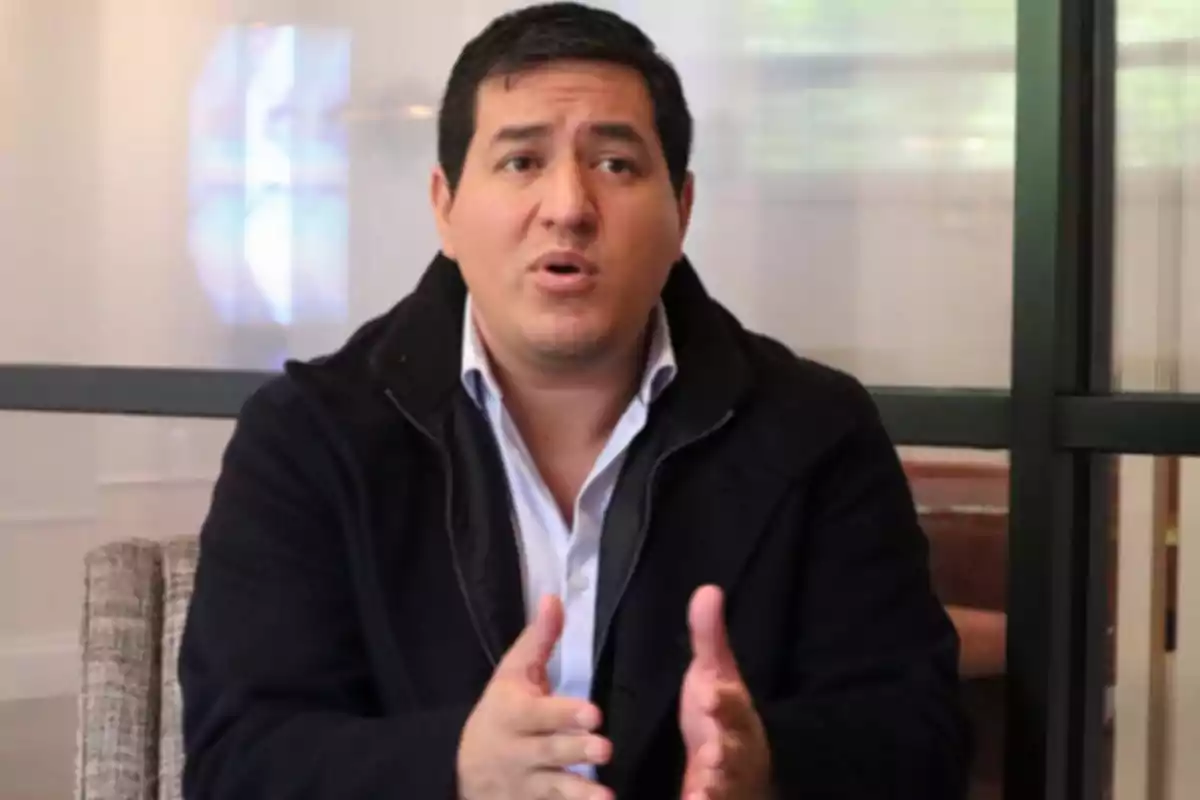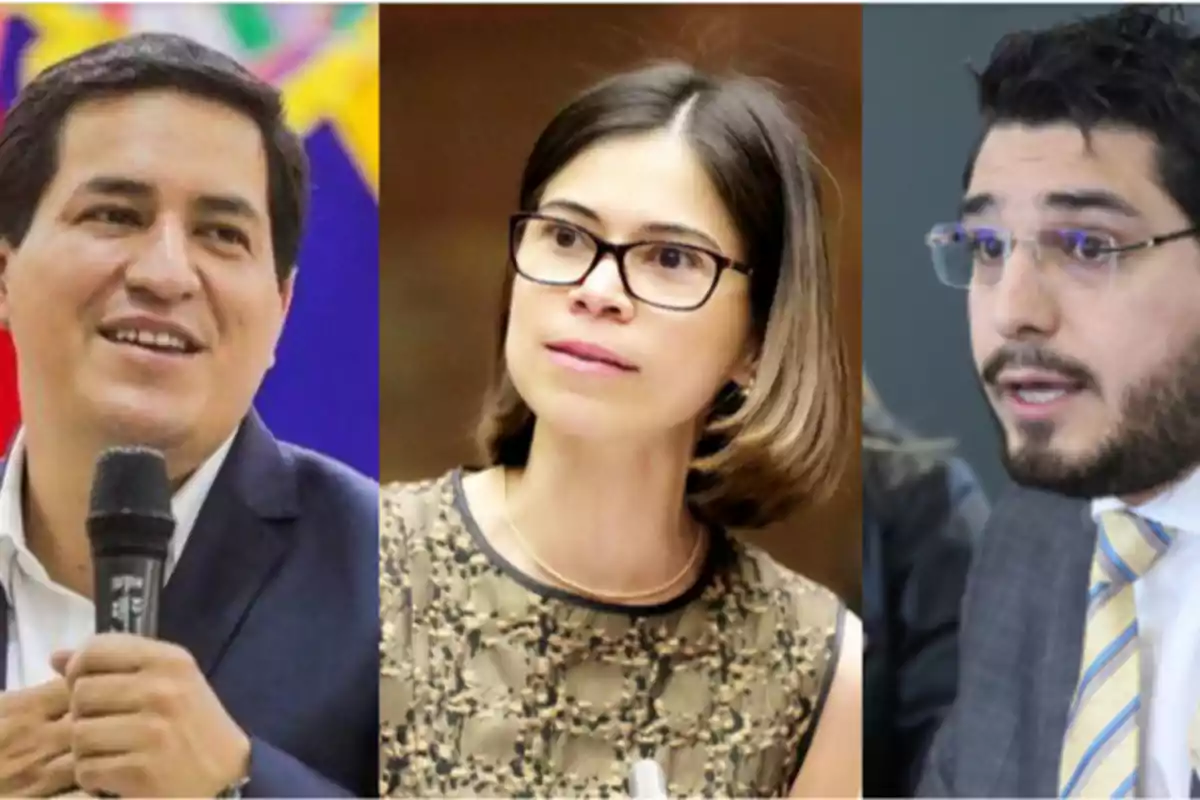
The Prosecutor's Office requested to link Andrés Arauz to the Ligados case for illicit association.
The request also included Esther Cuesta and Raúl González, linked to political pressures
The Attorney General's Office requested the involvement of Andrés Arauz, Esther Cuesta, and Raúl González in the Ligados case, related to an alleged illicit association that reportedly operated in the Citizen Participation Council (CPCCS). Prosecutor Diana Salazar submitted the request to Judge Daniella Camacho on May 19, 2025, arguing that there is sufficient evidence to extend the criminal process to these three figures of correísmo.
The file includes chat conversations and audios extracted from the cell phone of Augusto Verduga, former CPCCS member, detailing how they allegedly organized to manipulate key appointments, such as the Superintendent of Banks.
The messages feature initials and aliases attributed to Arauz, like AN and AA, exchanging views and strategies with other members of the so-called 'blue league,' a political arm linked to correísmo within the CPCCS. One of the investigated episodes is the deliberate delay in the appointment of Roberto Romero von Buchwald in the Superintendency of Banks, a decision allegedly motivated by Cuesta to favor González.
The latter had already been controversially appointed in 2022, ignoring a prior ruling by the Constitutional Court, reinforcing the alleged framework of institutional pressures. Arauz, reacting on social media, stated that he has faced numerous accusations, but this is the first time he is formally linked. “They actually pursue me because I always hit the sore spot,” he declared.

The former presidential candidate called the accusation absurd and claimed it responds to a post he made on the social network X, insinuating political persecution from the government.
This new judicial chapter adds to other investigations affecting former CPCCS members, where individuals were already prosecuted for alleged political interference in key institutional functions.
The Ligados case once again scrutinizes the mechanisms of correísmo to influence control bodies and institutional distribution, weakening the autonomy of the State.
The progress of this case exposes how power networks linked to correísta socialism attempted to consolidate their institutional influence through opaque practices. The Attorney General's Office advances in clarifying these links and reinforces the need to cleanse public institutions.
More posts: